- Home
- Cara McKenna
Unbound: (InterMix) Page 3
Unbound: (InterMix) Read online
Page 3
For a long time Rob circled the spoon in his mug, stealing glances at his inexplicable houseguest. He felt like a dog trying to make sense of physics.
There was a woman in his home.
There was an American woman—bleeding from her head and likely ill with crypto—sitting in his kitchen. She stared through the far window, face placid but for the line pinched between her brows that gave away her pain.
This was far more troubling than the middle-aged ramblers and adventurous students who normally came calling, the ones Rob did well at ignoring or running off with a few gruff, grunted directions toward the nearest scenic loch or motorway. He always breathed easier the second their colorful jackets disappeared over the next rise.
But Merry couldn’t very well be shunted down the hill, and knowing he was stuck with her for a night or more had his heart beating fast with taut, frantic thumps, his throat tight. He really ought to drive her to hospital and be rid of her, but he didn’t relish chancing it—his tax disc was expired, his license suspended. They might not take notice in the village, but the city was another matter. Plus the city made him anxious. More anxious than Merry’s company did, even.
He forced deep inhalations, though they did little more than leave him light-headed. That made two of them, he supposed.
He eyed his guest. She looked alien in his minimalist home. Too modern, with her shiny dark plait falling over the bright magenta of her fitted hiking top, piped in shimmery, reflective material. Such a vulgar color amid all the drab wood, the muted old curtains, the cold, earthy palette of the Highlands themselves. He’d be pleased to see the back of her, same as all those other lost ramblers.
But her departure couldn’t be rushed, not with that bump on her head, its owner still babbling like a drunk. He selfishly hoped the latter was a symptom of her head injury. Rob wasn’t much for conversation.
He didn’t know how to talk to women anymore, not aside from a handful of mumbled words to the clerks when he traveled to the nearest village to stock up on staples.
At some point in his twenties, Rob had known how to talk to women. Enough to get dates, to pull, to fall in love and get married. Then the darkness had come, and that man had been lost. Rob had gotten good at shouting, though. Demeaning, hateful words aimed at his wife in the grips of the inevitable hangover, and who knew what slurred venom when he was drunk. And he’d been drunk every fucking night, those final three years of his so-called civilized life.
His hands felt cold, wrapped around a phantom bottle. He hugged the mug in both palms, inviting it to scald him. Might take his mind off the panic. This entire scene smacked of retribution, as though Merry had been sent to punish him. Simply standing within ten paces of her disturbed him. That he could be so close to someone so soft and vulnerable—ill, even—was all wrong. He yearned to escape. Happily, he had a ready excuse.
“You seem stable,” he told her. “I’ll fetch your pack. Don’t lie down.”
“Thanks. It’s orange. Somewhere between here and the loch.”
He abandoned his tea and headed outside. As the door shut behind him, he focused on the sky, the air, the horizon . . . though it did little good.
For days at a time, Rob could forget who he was. When the weather stayed fair, he moved like an animal along known paths, meeting the most basic of physical needs, his thoughts no more than sensory feedback. Get him near town or trap him indoors and the words returned, ideas and worries strung paragraphs-long through his brain, tangling on one another, igniting old cravings.
Here in the hills, he had no mirrors. But in town, every set of eyes offered a reflection, and the man staring back at him was ugly and mean, unforgivably cruel. It made him ache for a drink, whereas out here, way past Great Glen, he could forget about the stuff for days at a time, lost in chores, stalking the odd deer, in hours-long swims in the deepest, stillest waters he’d ever known. With no other humans about, he was nothing more than an anonymous mammal—breathing and eating and living. But in the company of other people, he couldn’t help feeling he was the worst his species had to offer. Gluttonous, weak, spiteful.
It had taken the wilderness to make a civilized man of him, and he longed for this place every second he was away from it. Even more than he longed for a drink.
Orange nylon appeared down the hill. Rob eyed the sharp granite fins thrusting here and there through the scrubby grass and heather, thinking Merry may have gotten off easy with just a bump and scrape. As he hoisted her big trekking pack, the heft of it shocked him—three stone or close to it. And she’d been carrying this around for two weeks? Rob adjusted the straps and hauled it onto his back, amazed she’d gotten this far up the hill before ditching it. Perhaps he owed his unexpected guest a bit more credit.
It was just that women made him so very nervous. And Merry’s chirpy demeanor had him feeling all the more wretched, like a toadstool sat beside some cheerful yellow blossom.
He trudged back up the hill and grabbed the plastic whistle Merry had dropped by the stoop, fighting to keep his balance under the weight of her pack.
She was where he’d left her, and the smile she offered made his stomach twist. Her skin was so smooth. So lovely and tan and . . . American. He must look like a transient. A tangle of overgrown hair, face a week overdue to meet the business end of a razor.
He leaned her pack against the wall and clipped the whistle to one of its thousands of straps. So many straps. He blinked at them until Merry’s voice cut through the haze.
“Thank you so much.”
He swore he could hear his jaw creaking, this smile felt so rusty. He grabbed his tea from the stove. “No worries. Can you walk? Why don’t you have a seat in the rocker?” He waved her toward the chair, carrying the emergency bowl and eyeing her unsteady steps.
When she settled, he set the bowl by her feet and dragged the kitchen chair and table over. Their mugs sat side by side. Funny. Rob had only bothered bringing two mugs out here in case one broke. He’d never imagined actually needing a spare for entertaining.
Merry smiled at him expectantly.
This is where you make polite conversation, arsehole. He sipped his tepid, over-steeped tea and managed, “So. Glasgow to Inverness?”
She nodded and crossed two fingers. “Almost there.”
“You picked a good time of year.” The weather? Really? You massive pillock. But what else was there? “Bit cold, but the midges have gone.”
“And most of the other tourists,” Merry said. “Though I wouldn’t have minded running into a few more people. There were a couple times when I panicked, thinking I must have wandered through some wormhole and hiked myself into another century. Like maybe the next ruin I’d pass would be an actual castle, bustling with life.”
Rob tried to imagine the scene, such a silly, romantic thought . . . but he was far too out of practice at such things.
“Then inevitably a jet would pass overhead,” Merry went on. “Do you go for long stretches, not seeing anybody?”
“In the winter. In the nicer months I’ll hear voices or see people in the distance a few times a week.” He lived on a sunny, alluring bit of historic hillside, and only a couple hours’ hike from the central stretch of Loch Ness, albeit on the quieter side of the glen. He was never short on ramblers in the spring and summer. “Maybe once a week someone will come knocking, asking after directions. You’re the first one to turn up since . . . Actually, I’m not sure what the date is. But the first in two weeks or more.”
She smiled, looking around his little den. “Your home is really cool.”
“Is it?”
“Very peaceful. Very no-nonsense.”
“I’m not a fan of nonsense, so I suppose that suits me.”
“Not a city type?”
He considered it. “Not in recent years. I grew up in the city, and I loved it as a young
er man . . .” Loved it too much, in all the wrong ways. “But people change.”
“You must miss it sometimes, though.”
Some days he did. Missed the pub and the off-license, first and foremost, with an ache like lust. “There’s nothing there that ever did me much good.”
“Nothing?”
“It brings out the worst in people, living like that. In such a hurry, all crushed up against one another.” He hesitated before adding, “It brought out the worst in me, anyhow.”
“Can I ask what you did, before you moved up here?”
“I owned a couple businesses around Leeds, with a mate of mine. Nothing too thrilling.” Not the way he’d imagined it would be, when they’d been fresh out of university. But how could a blossoming alcoholic not be ecstatic at the prospect of opening his own bar? That was like a fire-starter taking a job in a match factory. And accordingly, Rob’s life had gone up in spectacular flames.
“From businessman to hermit,” she mused, smiling. “No offense.”
“The shoe fits.”
“How about ‘survivalist’? That sounds a bit nicer.”
“I’m not bothered what anyone calls me, these days.” He wasn’t bothered about much of anything, as long as he knew there was food to put in his stomach, wood for the stove, a bed to kip on. Not caring suited him down to the ground. Just keep his belly full and his head empty, keep those old, dark hungers from growling.
Merry yawned broadly.
“You must be knackered.”
She nodded. “I slept, but it wasn’t restful. All those trippy, repetitive dreams you get when you’re nauseous.”
“I’ve got some chores to tend to, but let me show your where the loo is, then feel free to sleep.”
She set down her mug and made it uneasily to her feet. He nearly offered her a hand, then chickened out, intimidated by the intimacy. Intimidated by her weakness. Once she was steady, he led her through the little storage area and out the rear door. “Watch the step down.”
She followed him across the yard and he pointed out the wooden closet that housed the most rudimentary of composting toilets. On the way back he filled a big enamel basin from the pump, carried it inside and set it on the stove.
He fed two logs to the fire. “Water should be warm in an hour or so, if you fancy a wash.”
“Thank you.” Merry settled again in the rocking chair.
Rob was feeling marginally more at ease, having endured an actual conversation with his guest. He draped a clean hand towel over the basin’s lip and fetched the wool throw from his tiny bedroom, passing it to her.
“I’ll try to stay within shouting distance. If you need privacy to change or get cleaned up, I’ll be outside for at least a couple hours. I doubt you’ll need any more wood for the stove, but if you do, there’s a stack by the rear door.”
“Thanks.”
He grabbed his jacket from its hook and downed the last of his cold tea. “I haven’t got much food that’s ready to eat.”
“I have tons in my pack. I’ll be fine.”
He nodded. “I’ll see you in a bit, then.”
Her smile caught him just before he turned, leaving his middle warm and queasy. He shut the door quietly at his back.
Rob did the usual weekly rounds, walking the length of the pipe that fed the pump and making sure it was sound. He kept a supply of cured fish and venison in a sturdy plastic barrel set into the earth just beyond the yard, and he checked the planks that covered it and the surrounding ground for signs of scavengers, pleased to not find any. A quick poke through the garden told him the last of the year’s potatoes were as ready as they were going to get. He’d tackle those tomorrow.
With a soft jingling, Rob’s only friend appeared, a small gray streak bounding up the hill from the west.
It was the ugliest dog in creation, some unfavorable terrier mix the color of dust, with stumpy legs and a head like an anvil. His fur looked perennially greasy, even when Rob took the time to wash him in the basin. Deaf as a rock to boot. But sweet.
“What’ve you been up to, then?” He crouched to receive the dog’s spirited arrival, rubbing his floppy ears. The animal routinely disappeared for a day or more at a time, but he’d been finding his way back for two years now.
“You’ll be excited to hear we’ve got a guest.”
At the moment the animal was more excited about a treat. It trotted to the edge of the yard and gave one of its wheezy near-barks. Rob got to his feet, following. He shifted the boards, unlatched the barrel’s lid, and sliced a strip of venison from the nearest hunk with his pocket knife.
He peeled a long ribbon and tossed it to the dog, chewing on the rest as he secured the supply. They stood in some facsimile of companionship, working through the tough fibers.
Useless though it was, he loved the dog.
He owed the dog. It had likely saved his life.
Three years ago, after his wife left him and his father passed away, Rob had come up to the Highlands on a whim, knowing in the back of his head he’d chosen it as the spot where he’d likely take his alcoholism to its natural conclusion. Drink himself to death in the only place he’d ever known any real joy. He’d booked a cottage not unlike the one he owned now, sobered enough to drive, and gone north with a few changes of clothes and a tinkling bootload of bottles.
Perhaps five miles from his destination, the dog had appeared.
Rob had been lucky to even spot it through the drizzle and the gin haze. It had been facing the other way, frozen in the road as though waiting for someone. Rob had slowed his car, gotten out. The dog had felt the slam of his door or his footsteps or caught his scent, and turned. Its tail had given a single, wimp wag, but the closer he came, the more it cowered. It was skin and bones, soaked from the rain. A creature as lost and pathetic as Rob had been, and that was no small feat. He’d lured it close with half a leftover sausage roll, and it had let him pet it. And being marginally drunk, Rob had scooped it up and taken it with him to the cottage, rabies be damned.
The dog had kept him lucid that week, if not sober. At first it had shivered with anxiety whenever Rob had come near, and made more than one panicky mess on the floor in the couple of days it had taken to trust him. But after that, it had been his ugly little shadow. And somehow, watching the dog grow stronger and put on weight had been more compelling to Rob than drinking himself into oblivion. It had been a long time since anything had needed him. Depended on him.
He’d brought the dog home to Leeds the next week and had it checked out by a vet, then took it back to the Highlands a year later when he moved for good. It was just the sort of companion Rob wanted. The both of them made of blood and bone, but mercifully unable to communicate beyond the simplest exchanges. Plus by the time Rob had left society, any creature that was excited to see him had become a rare thing indeed.
The dog’s head jerked, attention locking on a trio of crows loitering farther down the hillside. It stared for a long moment before bounding off on its business, leaving Rob to accept the reality he’d managed to misplace for a few minutes—he had a guest. A wounded, nauseous, human guest he really ought to be checking on.
He tidied the yard and cast the mountains a final glance, letting that cold rock root him in this place. Those snow-streaked peaks had been here forever, and they’d remain long after every human on earth had crumbled to dust. Much the way Rob would remain, long after Merry left to rejoin the race Rob had dropped out of.
He entered the cottage quietly but found her awake. She offered a dozy wave from the rocker, and the hand towel wadded beside the basin told him she’d had a wash while he’d been gone. She’d changed as well, her magenta top replaced by a butter-colored zip-up.
As he peeked in at the waning fire he asked, “Stomach still stable?”
“It is.”
She smiled, the gesture as warm as the stove before him. “We’ll find out.”
He most certainly wouldn’t be smiling in Merry’s position—guts churned up, trapped in some stroppy bastard’s cottage, dehydrated and sick. He managed to smile back, hoping the result didn’t appear too disingenuous.
Merry didn’t look quite so poorly as before. There was color in her face, life in her eyes. It boded well, making it likely she had a virus and could probably avoid a trip to hospital.
She had one foot on the floor, hugging the other leg to her middle and staring at the hills to the south. Rob fetched an armful of logs from the shed and stoked the fire, then settled in the free chair, joining her in gazing out the window.
It was chilly for late September—or was it October now? Rob knew better how to guess than he had last year, but he still had much to learn about the rhythm of everything. The first ground frost had come only a week earlier, and he suspected that meant it was still September.
The day was clear and bright but with the unmistakable bite of the approaching winter on the wind. It smelled of a dozen trips north with his father and older brother, stalking red deer, forgetting for a weekend the stresses of childhood and the sting of whatever words his mum had last lashed him with. Playing tourist in some simpler life out of a history book, imagining his rifle were a bow and arrow. Imagining he was Rob Roy or Robin Hood, any Rob other than some lanky outcast from West Yorkshire with no mates.
These days he stalked to keep meat in his diet, and though the taste of venison had long lost its novelty, the hunt thrilled him just as it had twenty-five years ago. He always felt a touch sad after a successful stalk, knowing he’d have no reason to do so again for months. Fly fishing didn’t offer quite the same rush.
“I can’t get over how quiet it is,” Merry murmured. “Even after two weeks.”
“After two years out here, I can’t get over how noisy it is in the village.”
“Whose home was this, originally? Who built it?”

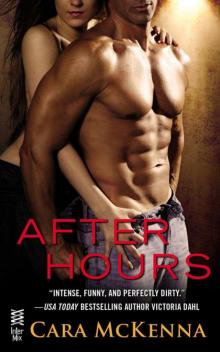 After Hours: (InterMix)
After Hours: (InterMix)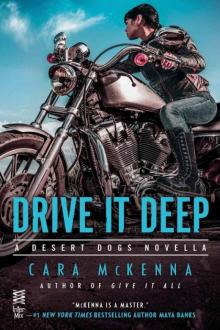 Drive It Deep
Drive It Deep ConvenientStrangers
ConvenientStrangers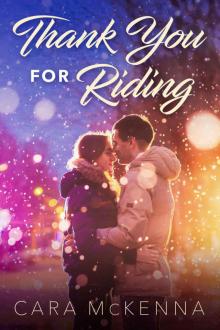 Thank You for Riding
Thank You for Riding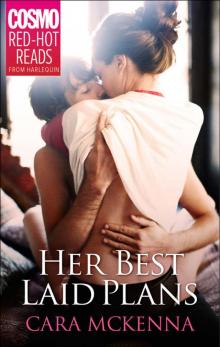 Her Best Laid Plans
Her Best Laid Plans Reversal
Reversal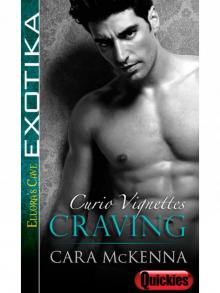 Craving
Craving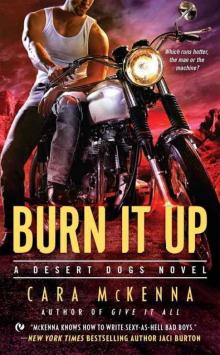 Burn It Up
Burn It Up Curio
Curio Ready and Willing
Ready and Willing DontCallHerAngel
DontCallHerAngel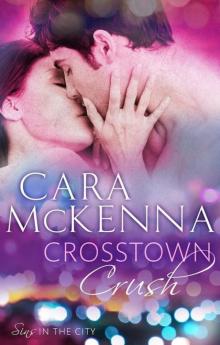 Crosstown Crush
Crosstown Crush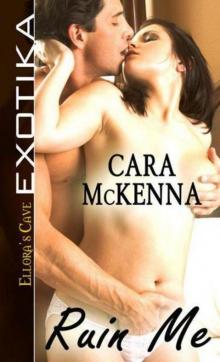 Ruin Me
Ruin Me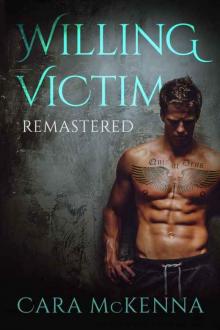 Willing Victim: Remastered
Willing Victim: Remastered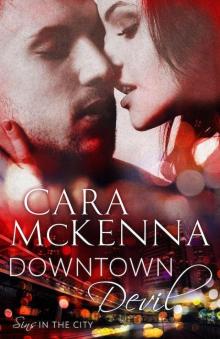 Downtown Devil: Book 2 in series (Sins in the City)
Downtown Devil: Book 2 in series (Sins in the City) Brazen
Brazen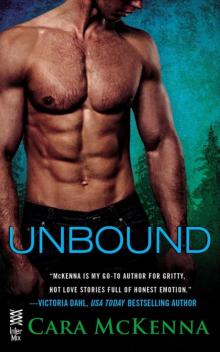 Unbound: (InterMix)
Unbound: (InterMix)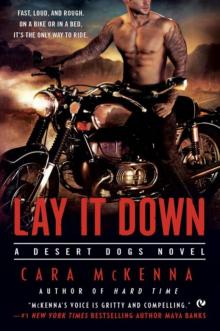 Lay It Down
Lay It Down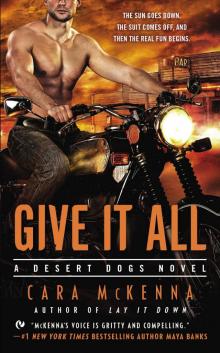 Give It All
Give It All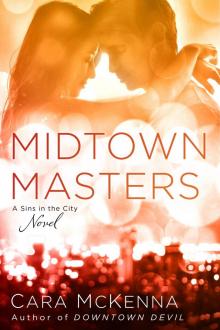 Midtown Masters
Midtown Masters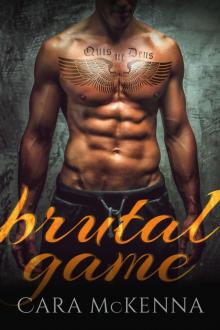 Brutal Game
Brutal Game Coercion
Coercion